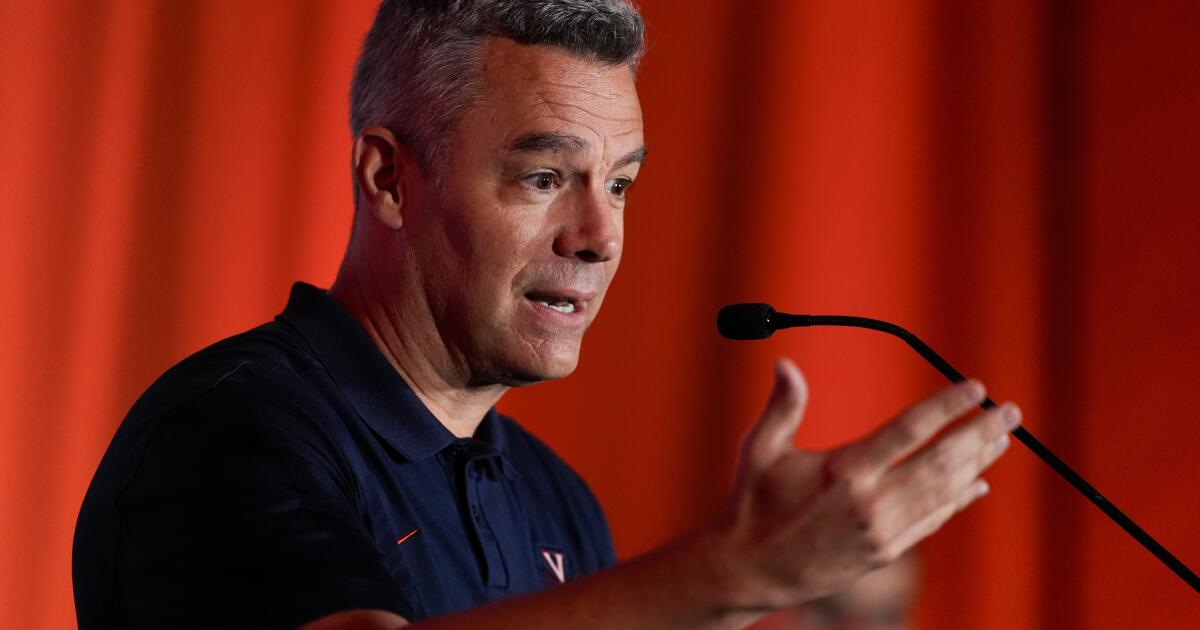Lakers hire former Virginia coach Tony Bennett as a draft advisor
Former Virginia coach Tony Bennett, who led the Cavaliers to the 2019 national title, has been hired by the Lakers as an NBA draft advisor to Rob Pelinka, the team’s president of basketball operations and general manager. Bennett’s record was 364-136 from 2009-24.
“As we refine and build out our NBA draft and scouting processes, we could think of no better basketball mind than Tony Bennett to have as a resource,” Pelinka said in a statement. “Tony’s track record of forming culture, with high-character, high-skill and high-IQ players is revered and respected across all basketball circles. Tony will be an incredible asset to our basketball leadership, to our scouts and to our draft department as a whole. We are truly excited.”
Virginia honored Bennett in a ceremony before Saturday’s 86-83 win over Miami, naming the court at John Paul Jones Arena after him.
Bennett was the AP national coach of the year in 2007 and 2018. He led Virginia to six ACC regular-season championships. He previously coached at Washington State from 2006-09.
“When Rob and I began talking, what stood out to me was the chance to help out such a storied organization,” Bennett said in a statement. “The Lakers carry a tradition that speaks for itself, so to be connected to it and assist Rob and the Lakers in any way I can is exciting.”
Bennett played under his father, Dick Bennett, at Wisconsin-Green Bay before playing four years in the NBA, including three for Charlotte from 1992-95.
Associated Press contributed to this report.
